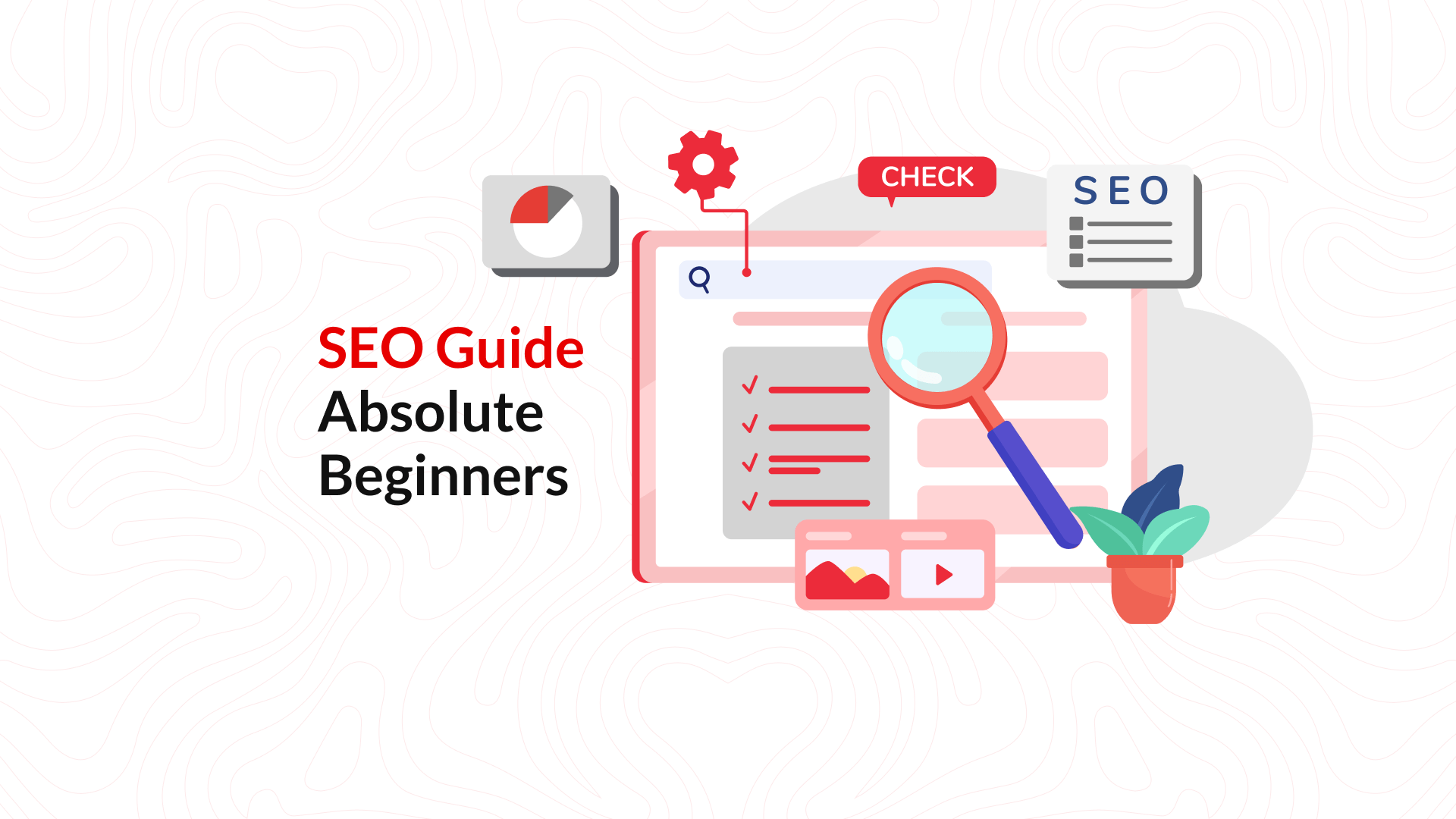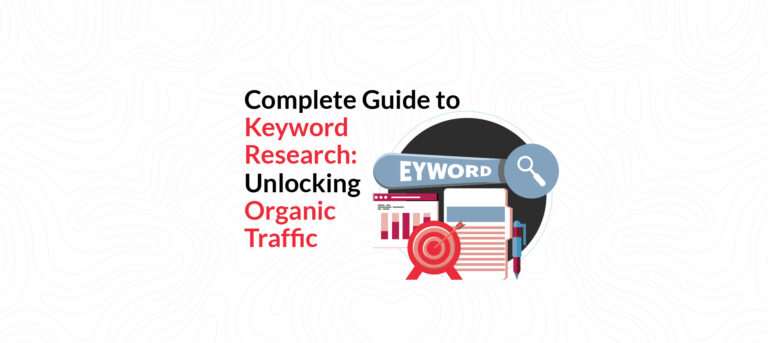SEO Guide : Absolute Beginner’s
Let’s begin with something simple but easy to forget.Your website might be live, but that doesn’t mean people are finding it. In fact, most aren’t. It’s like opening a store in the middle of the desert. Without a road map, or at the very least, a trail of signs, nobody’s showing up.
This is exactly what search engine optimization—SEO—tries to fix.
Now, if you’re hearing about SEO for the first time, you might assume it’s only for digital marketers or tech experts. That couldn’t be further from the truth. Whether you’re running a personal blog, an online store, or managing your company’s homepage, knowing a few fundamentals about SEO can make a world of difference. And no, it doesn’t require coding or software mastery—just clarity and some patience.
In this guide, we’ll break seo guide for beginners. Slowly. Carefully. So it actually makes sense. By the end, you’ll understand what SEO is, how search engines work behind the scenes, and how to make your site more discoverable—starting today.
SEO Guide for Beginners: What is SEO and Why It Matters
Let’s strip away the buzzwords. SEO is simply the art. Yes, sometimes it’s an art of helping search engines like Google find your content and rank it high in the results when people search for something relevant to your site.
But why should that matter to you, today, in 2025?
Well, here’s a quiet truth: nearly everyone begins their online journey with a search engine. Whether it’s a question, a product, or a comparison, they type it into Google. And guess what? Without SEO, your site might never appear on their radar. Effective SEO drives traffic, builds trust, and enhances credibility. Especially for seo for small businesses, organic traffic is cost-effective and sustainable.
Here’s another angle: SEO costs you time, yes—but not money, not directly. Unlike ads where you’re charged every click, SEO builds something that stays. You’re not renting space on Google—you’re earning it. That visibility builds trust. It sends a signal: this site is worth showing. That’s powerful.
And no, it’s not only for big corporations. A well-optimized small site can and often does outrank giants. Because SEO isn’t always about how big your brand is. It’s about how useful, how relevant, how well-structured your content is for a specific need. That’s why starting with this seo guide for beginners is so crucial.
How Search Engines Work (For Beginners)
It might feel like magic. You type a few words into a search bar, and in seconds, results appear—ranked, sorted, and often eerily accurate. But behind that clean interface lies a process that’s pretty systematic.
Let’s walk through it.
- Crawling: Think of this as the discovery phase. Google sends out digital bots, sometimes called spiders. These bots roam the internet constantly, jumping from one link to another, “reading” every page they come across. If your page has no links pointing to it or it’s buried behind login walls these bots might not find it.
- Indexing: Once they find your content, they try to understand it. Not emotionally, of course but structurally. What’s the page about? Is it about SEO tips? Travel hacks? Dog grooming? Google stores that data in a massive, ever-growing library called the index.
- Ranking: Now comes the smart part. When someone searches for “how to improve website visibility,” Google searches its index and decides which pages should show up and in what order. This is based on a complex (and constantly changing) algorithm. It looks at keyword relevance, backlinks, content quality, usability, and dozens—possibly hundreds—of other signals.
So, SEO basics is about making sure all three of these steps go well. You want your site to be easy to crawl, easy to understand, and compelling enough to deserve a top spot.
Beginners Guide to SEO: Understanding the SEO Basics
Let’s now move from theory to structure to decode beginners guide to seo. Most SEO practices fall under four big categories. Think of them like pillars. You need all of them to keep your house standing.
- Keyword Research: This is where it starts. Before you can optimize anything, you need to know what people are searching for. Not what you think they’re searching for but the actual words and phrases they use. Tools like Ubersuggest, Google’s Keyword Planner, or even plain Google Autocomplete can help you here. Tip: longer phrases (like “best indoor plants for low light”) tend to be easier to rank for than broad, generic terms (like “plants”).
- On-Page SEO: This is all the stuff you do on your actual pages. Using your keyword in the title. Structuring content with H1 and H2 headers. Including internal links. Writing clearly and with intent. Avoiding fluff. And yes, adding relevant keywords naturally—not by force.
- Off-Page SEO: This part happens outside your website. Mainly, it’s about backlinks. When another website links to yours, it’s like a vote of confidence. If a high-authority site references your blog, Google sees that as a signal: “This content is valuable.” Earning those links takes effort. You either create amazing content others want to share, or you do outreach—sometimes both.
- Technical SEO: This is the engine under the hood. Page speed. Mobile responsiveness. HTTPS encryption. Clean URLs. Sitemaps. It’s the part most beginners avoid—but shouldn’t. Thankfully, plugins and tools now exist to help non-tech folks cover these bases.
Each category matters. Weak technical SEO basics can cancel out great writing. Poor content can’t be saved by fast loading. They work together.
SEO Optimization Tips and Tricks to Improve Website Performance
So how to rank on google? Try these proven search engine optimization tips:
- Shrink Your Images: Huge image files = slow load times. Use compression tools before uploading. And always add descriptive alt text. It helps Google “see” your images. Also, improves accessibility.
- Use Clear, Simple URLs: No one trusts or remembers /p?id=832kj4. Use /seo-tips-beginners instead. Clean, readable, keyword-rich.
- Install an SEO Plugin: If you’re using WordPress, Yoast SEO or Rank Math will change your life. They flag missing metadata, suggest improvements, and even generate sitemaps automatically.
- Don’t Write Like a Robot: Seriously. Avoid cramming your keyword in every paragraph. Google’s smarter now. Use synonyms. Answer real questions. Be human. You’re not trying to trick an algorithm; you’re trying to help a person.
- Improve Page Speed: Use tools like PageSpeed Insights or GTmetrix. They’ll show what’s slowing your site down. Minify CSS. Lazy-load images. Choose a good hosting provider. It matters.
- Optimize for Mobile: Open your site on your phone. Is the text readable? Are buttons tappable? Does anything look weird? Google checks the mobile version first when ranking.
- Use FAQ Sections: People type in full questions now, thanks to voice search. Add real Q&As to your content. It helps with featured snippets and long-tail searches.
- Add Schema Markup: This one’s extra credit. Schema tells search engines what your page is. A recipe? An event? A product? Schema helps you qualify for those rich search results with stars, prices, and drop-downs.
These website seo tips improve performance and usability while increasing your chances of how to rank on google.
Most Common SEO Mistakes Beginners Make (and How to Fix Them)
Let’s be honest. Everyone messes up when they’re learning SEO. But some mistakes are easy to avoid if you know what to watch for.
- Keyword Stuffing: You don’t need to say “best budget camera” 14 times. Once in the title, once in a heading, a few times in the body—done. Overdoing it makes your content unreadable. And Google will notice.
- No Alt Text: It takes 5 seconds to describe your image. Yet so many skip it. Missed opportunity for accessibility and SEO.
- Broken Links: Internal links that lead to 404 pages? Not good. Use a plugin or site auditor to fix them regularly.
- Mobile Neglect: This one’s not optional anymore. If your site isn’t mobile-friendly, you’re losing rankings. And users.
- Duplicate Content: Copying the same content across multiple pages confuses Google. Either combine them or add canonical tags to show which one is the “main” version.
- Forgetting to Submit a Sitemap: It’s easy. It’s free. And it helps Google find all your pages. Do it through Search Console.
Avoiding these ensures your beginners guide to seo stays clean and effective.
Quick SEO Checklist for Beginners
Let’s note all this down into something you can use right away:
- Pick one main keyword per page
- Write a clear, engaging title tag and meta description
- Use headers (H1, H2, H3) to organize your content
- Link internally to other useful pages
- Test your site on mobile
- Switch to HTTPS if you haven’t already
- Run speed tests and improve slow pages
- Add alt text to all images
- Avoid duplicate or thin content
- Start earning backlinks through great content or outreach
- Submit your XML sitemap
- Refresh old posts every few months
These actionable points are perfect for any seo guide for beginners.
Final Words: Start Your SEO Journey Today
The truth? You don’t need to learn everything at once. You just need to start. Pick one tip from this guide—any of them—and apply it to your site today. Then pick another tomorrow. Over time, it adds up.
SEO isn’t a quick win. It’s a long game. But if you’re consistent, the results will follow. More visibility. More trust. More opportunities.
And if you want a little extra help, download our free SEO Starter Kit. Also, check out our 10 Best eCommerce SEO Tools to Boost Your Online Store to strengthen your eCommerce rankings or explore our technical SEO services for backend optimization.
Inside, you’ll find a checklist, a keyword template, and beginner-friendly tools to get you rolling.
“Download Your SEO Starter Kit” here.
FAQs
How long does it take to see results from SEO?
SEO takes time. For low-competition keywords, small improvements might appear in a few weeks. But for most competitive terms, expect 3–6 months to see results and up to a year for strong, stable rankings. Consistency is key.
Can I learn SEO on my own as a beginner?
Absolutely. Many people teach themselves SEO using free guides, blogs, and YouTube channels. Start with the basics, test them on your own site, and keep learning. Over time, hands-on practice builds real skill.
Do I need to blog for SEO to work?
A blog isn’t required, but it helps. Blogging gives you a way to publish fresh, keyword-rich content regularly, which can attract more traffic and backlinks. If blogging isn’t possible, you can still use product pages, FAQs, and other content formats to improve SEO.
Is SEO free or paid?
SEO traffic is free.You don’t pay per click like with ads. But getting those results takes time and effort. You might spend money on tools, content, or expert help, but the long-term return is often worth it.
Can social media help with SEO?
Indirectly, yes. Social media increases your content’s visibility, which can lead to more backlinks and brand searches—both of which support SEO. While likes and shares aren’t direct ranking factors, they help amplify your reach and trust online.














